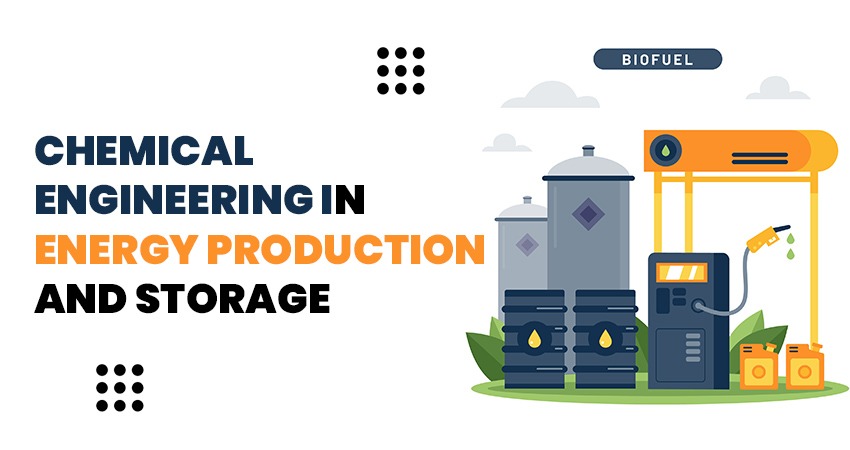User Ideas / Prospects

Energy is the backbone of modern society. Every sector, from transportation to technology, relies on it. Yet, producing and storing energy efficiently is a constant challenge. This is where chemical engineering steps in. It bridges science and technology to create solutions for energy production and storage.
Energy production is complex. It entails converting raw
materials such as coal, natural gas, or biomass into usable energy. Chemical Engineers make sure this process is efficient and sustainable.
One major contribution lies in the development of cleaner
fuels. Traditional fuels such as coal emit harmful emissions. Chemical
engineers are working to reduce these emissions through innovative techniques.
They design systems that capture carbon dioxide before it enters the
atmosphere.
Chemical engineers are excellent in another area:
renewable energy. To enhance efficiency, wind and solar energy rely on advanced
materials, and chemical engineers develop these. For instance, they create a
better coating for the solar panels so that more sunlight is captured.
Hydrogen energy is also getting attention. Hydrogen is a
clean energy source, but its production can be difficult. Chemical engineers
develop processes to make hydrogen production more efficient. That includes
innovations in electrolysis and fuel cells.
The
Role in Energy Storage
Energy production is just one side of the coin. The other
side is storage. Renewable energy systems cannot work without proper storage.
Flow Batteries: Flow batteries are large-scale batteries,
primarily ideal for storing renewable energy. Chemical engineers design fluids
that store energy in these systems.
Another focus is thermal energy storage. It involves
storing heat from the sun or industrial processes. Chemical engineers develop
materials that retain this heat for long periods. These systems are very
important in balancing energy supply and demand.
Sustainability
and Environmental Impact
Chemical engineers are at the forefront of sustainable
energy solutions. They focus on reducing waste and minimizing environmental
impact.
Recycling is another input of chemical engineering.
Valuable materials in these batteries and panels are being reclaimed by
chemical engineers. Sustainability for energy systems follows this recycling
strategy.
Future
Prospects in Energy Engineering
Chemical engineering holds the key to the future of
energy. Each day sees a new emergence of technology. These technologies, made
practical, have been driven into reality by chemical engineers.
AI is the recent addition in the energy systems. The
chemical engineers optimize the process through AI. The efficiencies are
enhanced with reduced cost.
Another breakthrough is nanotechnology. This is working at
the atomic level with materials. Chemical engineers utilize nanotechnology in
developing improved catalysts. The catalysts speed up chemical reactions in the
generation of energy.
Fusion energy is on the horizon, too. It imitates the
generation of energy by the sun. Chemical engineers are striving to make this
energy a reality. It can generate unlimited clean energy in the future.
Why
Engineers Heaven is Your Best Resource
If you’re passionate about chemical engineering, visit the og. This website is a hub for engineers and aspiring professionals. It offers valuable resources for understanding energy systems and beyond.
Engineer’s Heavenprovides easy-to-read articles on cutting-edge technologies. It also offers practical tools for students and professionals. Whether you’re researching fuel cells or battery storage, this site has you covered. It also links you to the world community of engineers. Share your ideas with other engineers, learn from the best minds, and enjoy your life on the go with Engineers Heaven as more than just a resource.
(Disclaimer: This statistics could be different in
different part of World and Different timeline. this statistics has been
generated based on data available till 2025 or relavant time span.)
